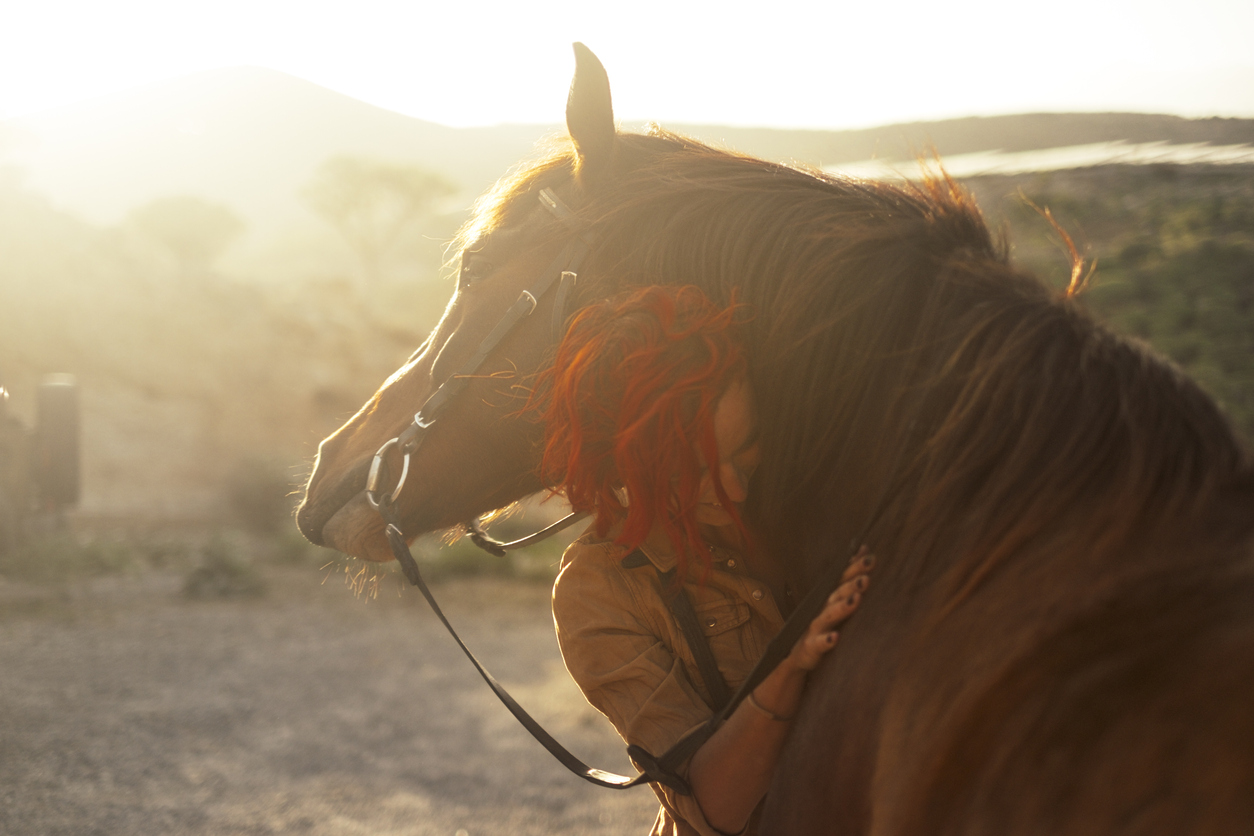Think about the concept of grief support. What would bring you comfort after experiencing the death of a loved one?
You might imagine family and friends gathered together, laughing and crying while remembering old times. Or perhaps you’d consider a grief support group, where people talk and listen alongside a professional grief counselor.
It’s true, verbal communication and socialization help many people work through complex, difficult feelings. Talk-it-out isn’t for everyone, though.
“Some people feel uncomfortable talking about their loss and feelings in a group,” says Deanna Upchurch, director of clinical outreach services for HopeHealth. “But they might be willing do something focused on activity and movement.”
HopeHealth offers alternative grief-support groups for people who process grief in less traditional ways. These groups include:
- Equine (horse) therapy
- Yoga
- Mindfulness and meditation
- Soulful Signs (sharing signs from the afterlife)
“The goal is to find a level of peace with the loss, but how that takes shape over time is different for all of us. Each person is the best judge of what’s going to work for them.”
Intuitive vs. instrumental grief
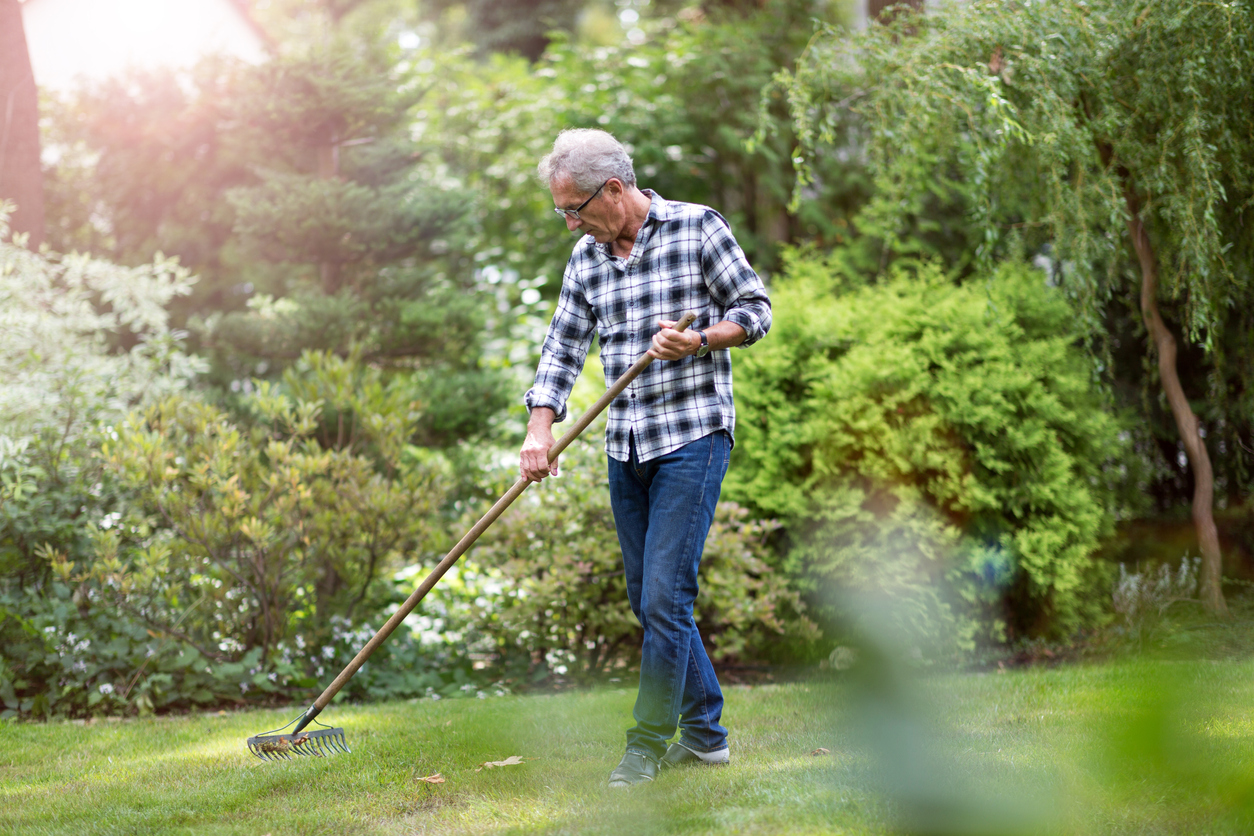
Psychology teaches us that there are two types of grief: intuitive and instrumental.
Intuitive grievers are more likely to feel extreme sadness and pain. They express themselves outwardly through tears or conversation.
On the other hand, instrumental grievers tend to mentally separate themselves from the loss and keep their feelings inside. Alternative grief-support groups based on physical activity could be a good outlet for this type of processing.
Deanna shares the example of a mother and father who lost a child. “She may come home, cry, process—all of that stuff. He might be out in the yard raking leaves. There’s no right or wrong,” she says.
Further, an individual can grieve both intuitively and instrumentally at different points in their grief journey.
“Some people start in a traditional support group but after three months are ready for something else, like the mindfulness group. Or they might not be ready for talk therapy but want to start off with equine therapy or yoga.”
“The goal is to find a level of peace with the loss, but how that takes shape over time is different. Each person is the best judge of what’s going to work for them,” Deanna says.
Horses are highly sensitive to human emotions and react to our body language and non-verbal cues.
Equine therapy
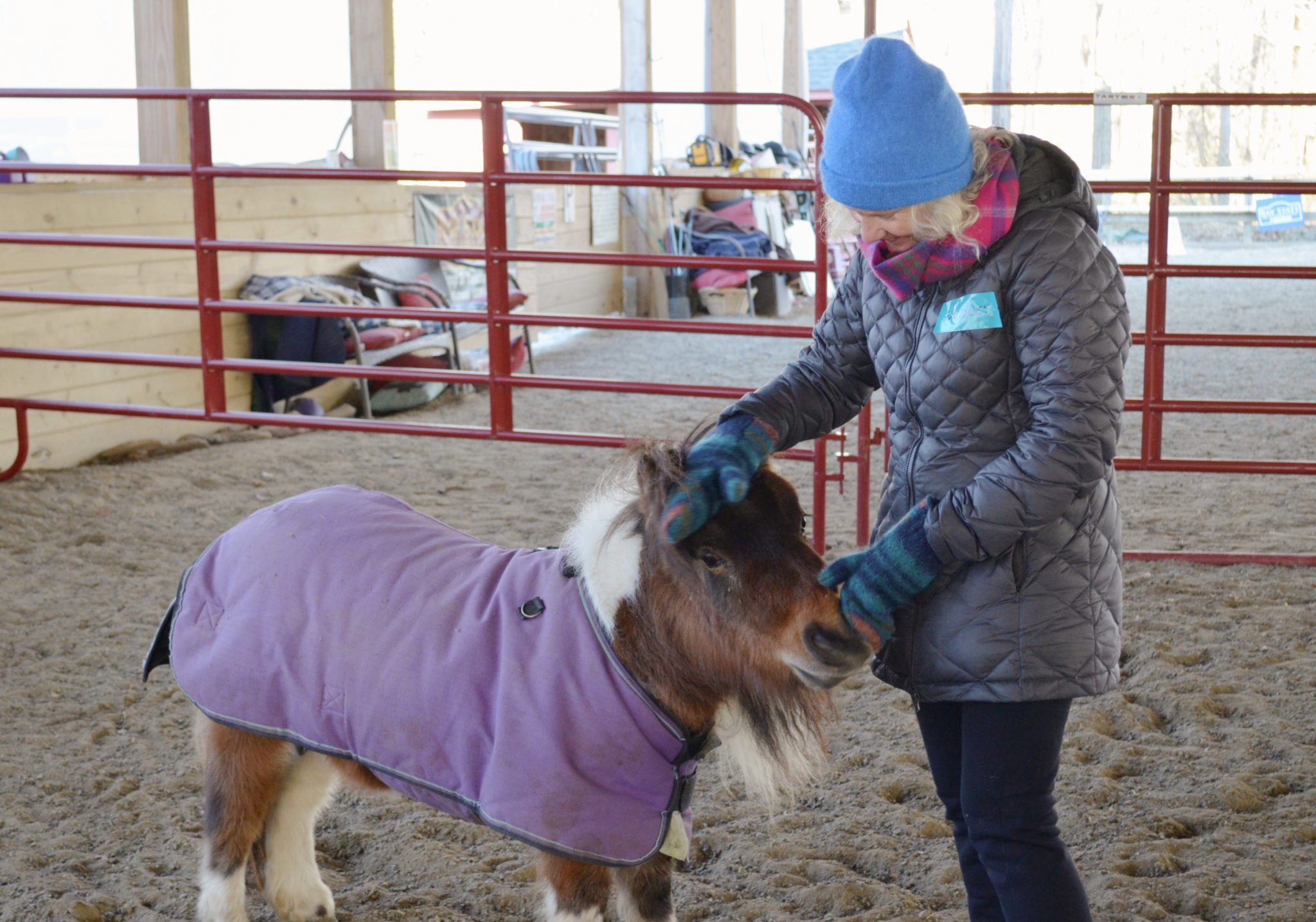
You might be familiar with pet therapy, where specially trained animals bring comfort to people who are suffering. (HopeHealth connects hospice patients with therapy dogs and pet therapy volunteers.)
In 2020, HopeHealth began offering an equine therapy grief-support group in partnership with Faith Hill Farm Foundation in East Greenwich, RI.
Horses are highly sensitive to human emotions and react to our body language and non-verbal cues. Interactions with these gentle and intuitive creatures are known to help people rebuild trust and process difficult emotions in a non-verbal way.
In this support group, you can visit the farm and observe or interact with a trained therapy horse without riding it. The setting is a peaceful space for you to reflect, project and make deep connections.
Prior experience with horses isn’t required. In fact, Deanna used to find horses a bit intimidating before visiting the farm.
“A horse came to the fence and put his head on my shoulder so gently,” she recalls. “Every time I went to walk away, he kind of gave me a nudge. It was very sweet!”
A HopeHealth grief support counselor guides the group alongside a mental health professional or equine specialist certified in the EAGALA Model. (EAGALA stands for Equine-Assisted Growth and Learning Association.)
Yoga grief support
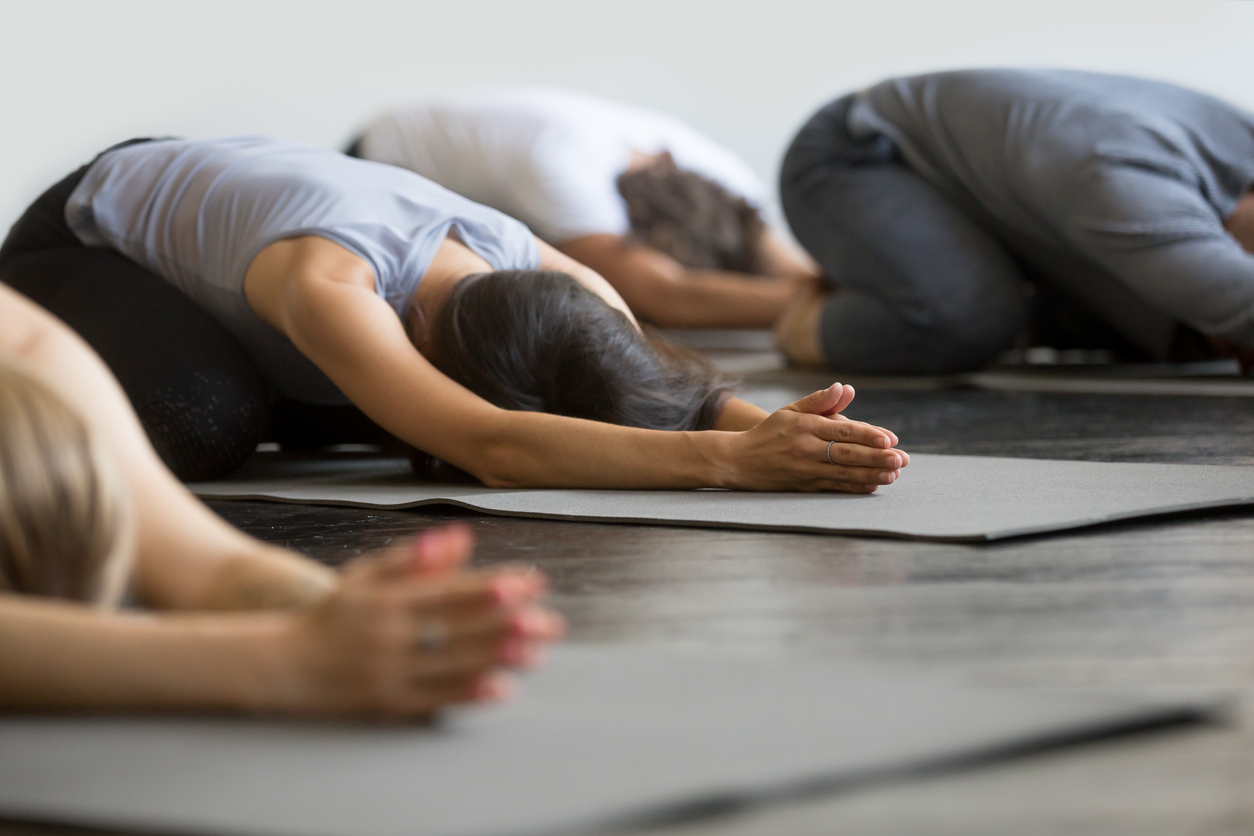
The throes of grief can affect your body in many ways. You might feel like you’re suffocating. You could feel detached and numb. Or maybe you have a stiff neck that won’t seem to go away.
“Many times our bodies physically fall out of whack and we don’t relate it to the grief,” Deanna says.
The yoga studio is a place to explore the mind-body-spirit connection and open up your body and heart to healing. The instructor will guide you through yoga poses and deep breathing exercises to ease tension in the parts of the body affected by grief.
What makes this any different than attending a regular yoga class? “It gives you a safe place where your vulnerable emotions can be seen and shared,” Deanna says. Some participants even find themselves crying at the end of a session. That release can bring a lot of comfort.
Meditation and mindfulness
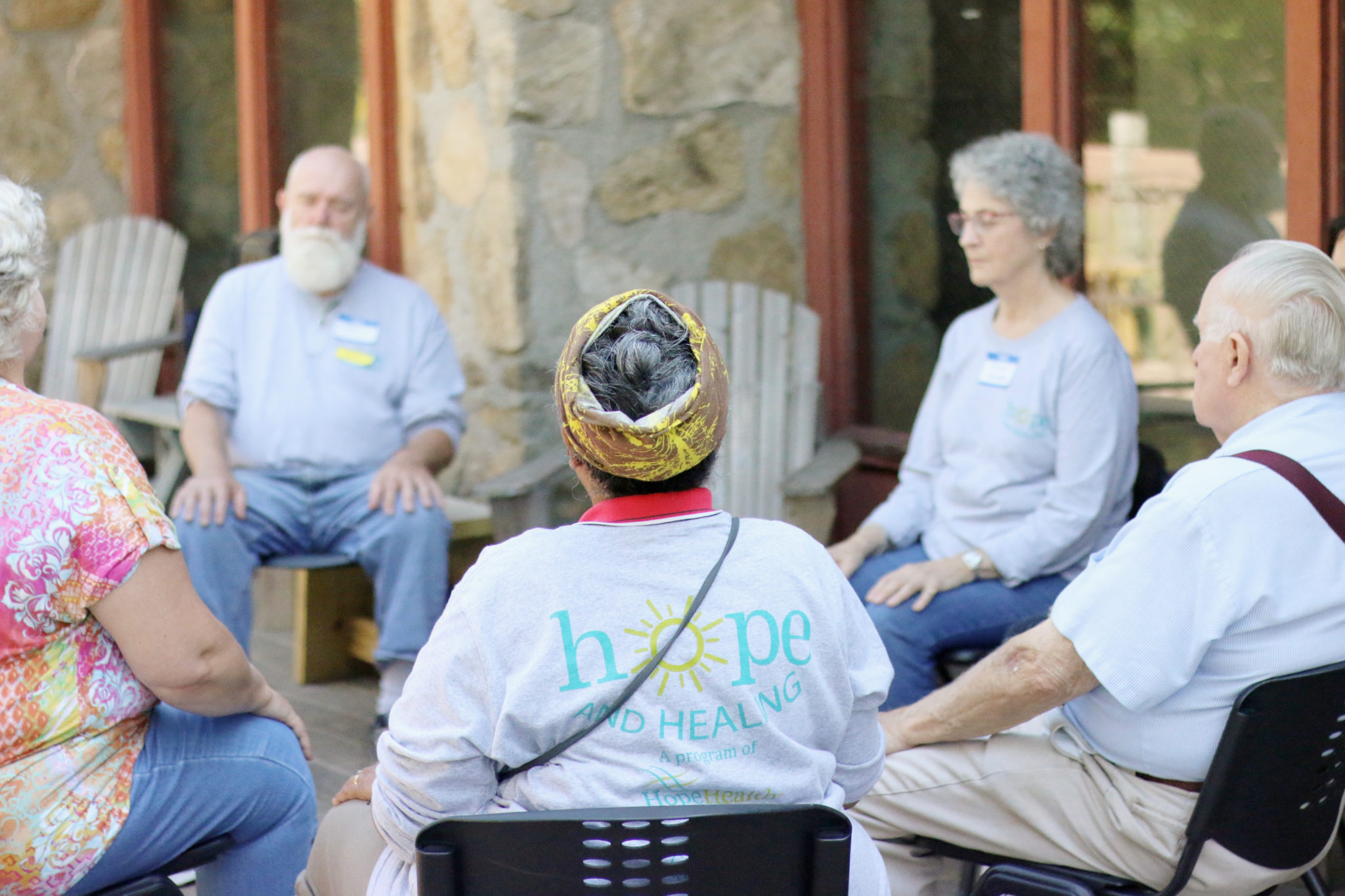
Practicing mindfulness is another alternative way to manage grief, stress or anxiety.
To be mindful means you’re aware of your thoughts and emotions in the moment. It can help you sleep better, become more emotionally resilient and discover new meaning after suffering a loss.
Grief-related anxiety, insomnia and difficulty breathing can come on unexpectedly or during quiet, idle times. Learning to meditate or practice mindfulness can get you through these rough moments.
“The mindfulness support group puts another tool in your toolkit for dealing with grief,” says Deanna. “We’ve seen a lot of great results with people able to self-soothe.”
Signs from the afterlife

If you’ve perceived signals you believe are coming from a loved one in the afterlife, the Soulful Signs group could be for you. This is one of HopeHealth’s most popular grief support groups.
Soulful Signs is a space for you to share your stories and connect with others experiencing similar signs.
For example, you might talk about how you saw your loved one in a dream. Or you might feel your loved one’s presence in some way, like through a bird perched outside your window, a lost object suddenly found, or a song playing on the radio.
“Someone might say they can smell their mother’s perfume. Now, others might discount that as a hallucination, but it’s actually an olfactory memory, which is very vivid. We don’t just remember people by what they looked like,” Deanna explains.
The group moderator might lead you through a guided meditation where you recollect memories based on that observation. This experience can be comforting.
Grief can be a heavy burden to carry alone, which is why HopeHealth offers nearly 30 traditional and alternative grief-support groups. All are open to the community and free to attend.
Feel free to try different types of groups until you find the activity, experience or community that brings you comfort.

